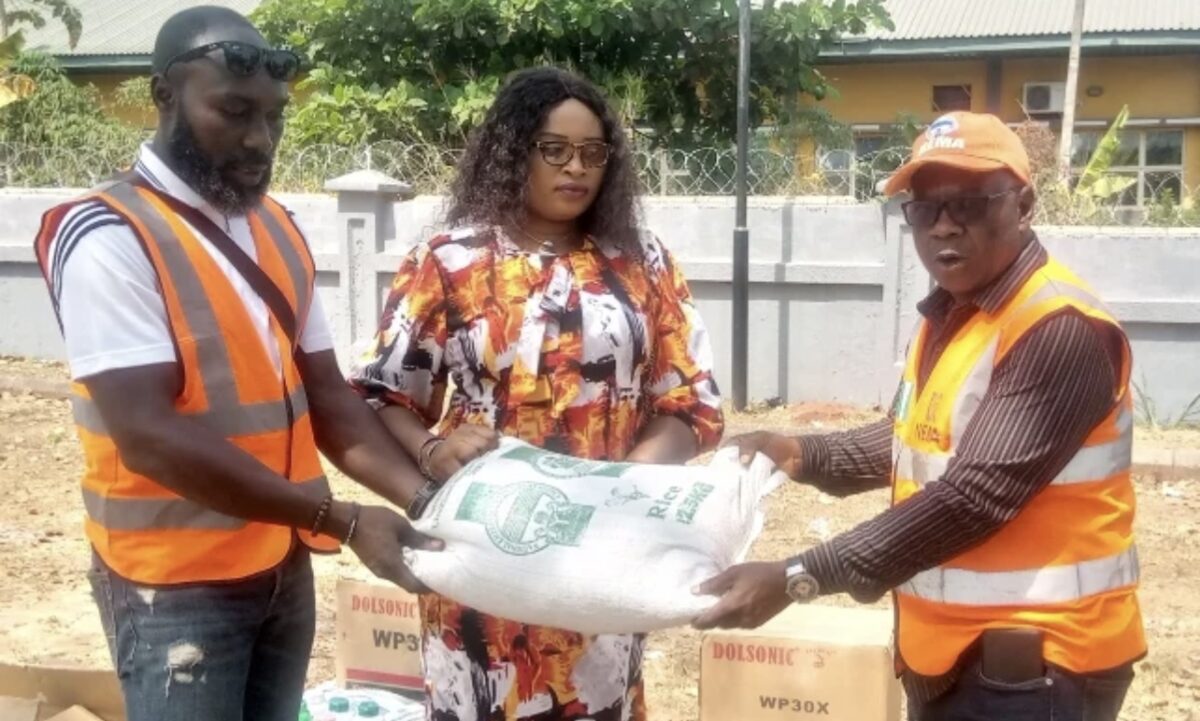CSOs urge Shell to address environmental degradation before selling off Nigerian assets

A coalition of civil society organisations working on the impacts of oil and gas extractions in the Niger Delta has kicked against the decision of Shell International to sell its onshore business assets in Nigeria.
The CSOs in a statement on Wednesday in Benin City demanded that the oil company must address the ecological, health, economic and social impact concerns in the area before selling the assets.
The statement was jointly signed by Nnimmo Bassey of the Health or Mother Earth Foundation, Ken Henshaw of We The People and Akinbode Oluwafemi, Corporate Accountability & Public Participation Africa.
Others are Emem Okon of Kebetkache Women Development and Resource Centre; Tijah Bolton-Akpan, Policy Alert; and Stephen Oduware of Niger Delta Alternatives Convergence.
Shell on Tuesday announced that it had reached an agreement to sell its onshore subsidiary in Nigeria, Shell Petroleum Development Company to a consortium of domestic and international oil companies for a total net fee of $2.8 billion.
The company noted, however, that the finalisation of the transaction was dependent on the approval of the Federal Government of Nigeria.
The coalition called on Shell to own up to its ecological damage of the territories it had exploited.
It called on the Federal Government to immediately place a moratorium on all oil company divestment (or sale of assets) in the Niger Delta, pending the ascertaining of issues of community concern.
The statement said, “We have keenly observed the scheming by Shell to sell off its onshore assets in Nigeria despite clear protestations by communities and civil society organisations. This transaction follows similar moves by Chevron, Total-Energies and ExxonMobil to sell off oil assets in the Niger Delta.
“While we acknowledge that businesses have the right to dispose of their assets as they see fit, we are concerned about the manner in which this transaction is carried out, as well as the immediate and long-term implications for communities and the cause of ecological justice.”
According to the group, the communities which Shell often refers to as its ‘hosts’ and have endured the impacts and inconvenience of oil extraction for over six decades have not been consulted or informed of the planned sale.
“Shell has persistently engaged in irresponsible and reckless hydrocarbon extraction practices resulting in severe ecological, health and economic consequences. Multiple inquiries have determined that the corporation and its associates are responsible for causing environmental destruction that has devastated people’s means of living, contaminated communities and facilitated situations that violate human rights,” the coalition said.
The group bemoaned that divestments, including the latest by Shell, had happened haphazardly and in manners solely determined by oil companies.
The coalition noted that Shall had paid little or no attention to the broader ecological, economic and social impacts that their activities had bequeathed to the host communities.
The CSOs also called for full payment for the remediation and restoration of the polluted areas, as well as reparations to the host communities.
This, they explained, was amid several local and international reports which indicted the oil company on the pollution caused by its operations in the region.
The CSOs urged the Federal Government to immediately produce a framework and guide for how oil companies can disengage from areas where they had operated.
This guide, it said, should be developed by a multi-stakeholder group, including communities and civil society organisations.
It called for a divestment framework that contains a scientifically developed post-hydrocarbon impact assessment report that establishes the exact ecological and livelihood impacts of oil extraction.
“The framework must also contain a health audit of people located near extraction sites and others exposed to oil contamination and gas flaring, aimed at unravelling the negative health impacts of exposure to hydrocarbons. The framework must also contain a detailed plan and costing for remediating the ecological, livelihood and health impacts of extraction.
“The establishment of independent frameworks for remediating all identified impacts and compensation to the impacted individuals and host communities,’ the group said.
The coalition also called for the posting of funds in a designated account commensurate for the cleanup of impacted ecosystems and restoration of livelihoods.
(NAN)
We have recently deactivated our website's comment provider in favour of other channels of distribution and commentary. We encourage you to join the conversation on our stories via our Facebook, Twitter and other social media pages.
More from Peoples Gazette

Politics
Katsina youths pledge to deliver over 2 million votes to Atiku
“Katsina State is Atiku’s political base because it is his second home.”

States
Man in court for allegedly buying stolen iPhone
“Some group of boys robbed the complainant, David John, of his iPhone 12 Pro Max worth N510,000 at gunpoint.’’

NationWide
NEMA distributes agro inputs to 2,000 households in Anambra
“I want to thank Mr President for making these items available.’’

Lagos
Embark on tangible projects, Lagos commissioner tells LG chairmen
“There is nothing hindering the chairmen from executing huge projects at the grassroots.’’

World
UK PM’s Rwanda immigration plan for asylum seekers survives lower house vote
It is the latest legislative effort to address concerns raised by the Supreme Court.

States
Lassa Fever: Cross River begins contact tracing, line listing
“The team will carry out a decontamination of affected premises.’’

Anti-Corruption
Alleged Fraud: EFCC again files 20 amended charges against Emefiele
Justice Hamza Muazu on November 22, 2023, granted Mr Emefiele bail in the sum of N300 million.







